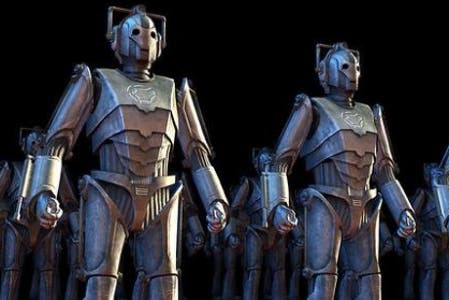Doctor Who: The Eternity Clock Preview: Setting Back the Clock
A new arm of the BBC is getting serious about games, as this new adventure attests.
If you're in the business of turning a beloved TV series into a video game, it's best to start with the very essence of what you're trying to capture. Going after HBO's take on Game of Thrones? You'll want politics and consequence as well as a downtrodden world (and good luck to Cyanide, which is taking on that very task, but it's hard not to wonder what the likes of CD Projekt could have done with the premise). Doing EastEnders? You'll want to preserve the misery and the improbable melodrama (sounds just about perfect for David Cage, in fact).
And if you're doing Doctor Who, you'll want to preserve the lovable if slightly wonky heart of a show that's endured for coming up to 50 years. Sadly, that's something that recent attempts have failed to acknowledge. Recent DS efforts seemed to have forgotten completely that they had the good Doctor to hand, while Sumo's adventure games, for all their charm, fell a little short on quality.
So offer a warm welcome to Doctor Who: The Eternity Clock, a new venture from the BBC that's doing its very best to avoid the mistakes of its predecessors. It's one of the first fruits of a new approach to gaming from the BBC. Outings such as the adventure games were a product of the public service part of the corporation, whereas this is the product of a new commercial arm, and it's one that's very serious about getting games right.
To that end, it's working on a more focused take on gaming, and one of the first fruits is this: a 2D scrolling action game produced in collaboration with Supermassive Games that's coming to PC, Mac and PlayStation Network, where it'll be available on both PS3 and Vita.
Made using the Unreal 3 engine, it's a mixture of platforming, puzzling and exploration that's lightly reminiscent of the likes of Shadow Complex - but Supermassive's been smart enough to make sure all those elements serve the licence well.
The set-up is standard Doctor Who fare - and that, of course, is a very good thing. The Tardis has crashed, leaving you stranded and allowing Matt Smith (who lends his image as well as allowing his gangly limbs to be mo-capped) to do what he does best, manically tending to chattering brass devices and dancing around like a drunken octopus.
It's a present-day London that the Doctor finds himself in, exiting the Tardis to a handsomely realised Bank of England. It's a part of London that you'll get to know well over the course of The Eternity Clock, as it's all set within the same locale, but across four different eras that you'll explore in a 2D adventure that's told in 3D.
It's the first time that time travel has featured in a Doctor Who game, which comes as something of a shocking revelation - doing the Doctor service without the wibbly-wobbly timey-wimey stuff is like getting the FIFA license and not bothering to put the ball in the final product.
So there's an Elizabethan London and a Victorian one that sit alongside a present-day take and one plucked from the far future. It's fundamentally the same space, but details change - so a textile factory from Elizabethan times becomes a sterile office block in present day, while in the future it's a complex from which leagues of Cybermen spew forth.
An action in one period could have an effect on another, and the period interweaves not only across time but also across two different characters. The Doctor, as canon dictates, is a pacifist, solving puzzles by wielding a Sonic Screwdriver that's mapped to the right stick. River Song, the second playable character, brings a little firepower to the proceedings, and the two work in tandem across a co-op campaign.
In single-player you'll get to play both characters, and their interactions have been handled smartly. One instance sees a horde of Cybermen approaching the pair: as the Doctor you've got to solve a small logic puzzle, your progress being timed, and it's that time that will dictate how long you'll have to fight off the enemy when you get to play as River in that section later in the campaign.
All in all it's a smart and thoughtful handling of the source material, and one that's born from a passion for the licence at Supermassive. Doctor Who: The Eternity Clock is a bit low-budget, its sets a little creaky, but it's got some big ideas and an even bigger heart. A little like the show itself, then.







.png?width=291&height=164&fit=crop&quality=80&format=jpg&auto=webp)




.jpg?width=291&height=164&fit=crop&quality=80&format=jpg&auto=webp)
